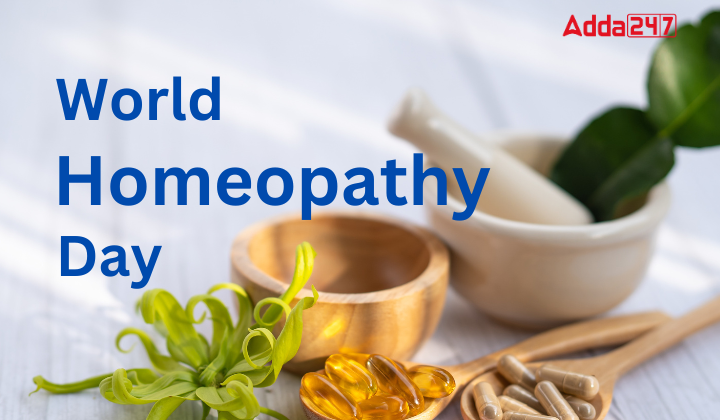Table of Contents
World Homeopathy Day 2024
Every year, on April 10th, World Homeopathy Day is observed to enhance public awareness of homeopathic medicine in healthcare. This special day pays homage to Dr. Christian Samuel Hahnemann, the pioneering figure behind the homeopathy system in medicine. World Homeopathy Day primarily focuses on promoting understanding of homeopathy and acknowledging patients who have benefited from its remedies. The term “homeopathy” originates from the Greek word “Homeo,” signifying suffering or diseases. World Homeopathy Day is commemorated to explore the obstacles and prospective approaches for advancing homeopathy. Its objective is to raise awareness regarding homeopathic medicine. The provided article furnishes an in-depth examination of World Homeopathy Day, encompassing its themes, historical background, significance, and notable quotes. In this article you will read about theme, history and significance of the World Homeopathy Day 2024.
What is Homeopathy?
Homeopathy, established by Samuel Hahnemann in the late 1700s, represents an alternative medical system. Its foundation lies in the principle of “like cures like,” suggesting that substances inducing specific symptoms in healthy individuals can treat similar symptoms in sick individuals when administered in greatly diluted and potentized forms.
Important Days in April 2024: National & International
Practices
Dilution and Potentization: In homeopathy, remedies are created by diluting substances like plants, minerals, and animal products in water or alcohol, often to very low concentrations, and then “potentized” through vigorous shaking or succussion.
Personalized Treatment: Homeopaths take into consideration an individual’s specific physical, emotional, and mental symptoms when prescribing remedies, aiming to develop a treatment plan tailored to each patient.
Minimal Side Effects: Traditionally, homeopathy asserts a lack of significant side effects due to the highly diluted nature of the remedies. However, there is a potential for some side effects, such as temporary worsening of symptoms.
Theme of World Homeopathy Day 2024
The theme for World Homeopathy Day 2024 is “Empowering Research, Enhancing Proficiency: A Homeopathy Symposium.” In the homeopathic medical system, there is a belief in the body’s innate ability to heal itself. Homeopathic remedies comprise natural elements such as plants and minerals, which are thought to possess inherent healing qualities.
History of World Homeopathy Day 2024
Homeopathy traces its roots back to the late 18th century when Dr. Samuel Hahnemann, a German physician, introduced the principles of this alternative medical system. Dissatisfied with the conventional medical practices of his time, Hahnemann began experimenting with substances to find a gentler, more holistic approach to healing. Through rigorous testing on himself and volunteers, he developed the fundamental principles of homeopathy, including the law of similars (“like cures like”) and the principle of potentization.
Dr. Hahnemann’s groundbreaking work laid the foundation for homeopathy to spread globally. Despite facing skepticism and opposition, homeopathy gained popularity due to its gentle yet effective approach to treating various ailments.
Significance of World Homeopathy Day 2024
World Homeopathy Day serves as an occasion to raise awareness about the benefits of homeopathy and its role in promoting natural healing. It provides an opportunity for practitioners, researchers, and enthusiasts to come together and share knowledge, experiences, and advancements in the field.
One of the key significance of homeopathy is its emphasis on individualized treatment. Homeopathic remedies are prescribed based on the unique symptoms and characteristics of each patient, acknowledging the interconnectedness of physical, mental, and emotional well-being. This personalized approach aligns with the growing demand for patient-centered care in modern healthcare systems.
Moreover, homeopathy offers a safe and non-toxic alternative to conventional medicines, making it suitable for people of all ages, including infants, pregnant women, and the elderly. Its gentle nature and minimal side effects make it particularly appealing for long-term management of chronic conditions.





 GA Capsule for SBI Clerk Mains 2025, Dow...
GA Capsule for SBI Clerk Mains 2025, Dow...
 The Hindu Review October 2022: Download ...
The Hindu Review October 2022: Download ...
 Seating Arrangement Questions for IBPS R...
Seating Arrangement Questions for IBPS R...


